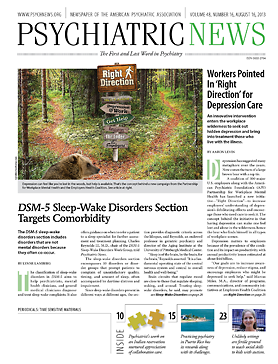My training in medical informatics leads me to be almost infinitely optimistic about the idea of electronic medical records (EMRs), while my experience in an array of training environments continuously reminds me how far we are from the ideal.
Even as our technological systems move toward meaningful use and the financial compensation that accompanies adopting those systems, we as physicians often find ourselves frustrated with the usability of existing systems and with the sometimes intrusive tasks that accompany them. Checking a box labeled “no heart failure” for each patient discharged from an inpatient psychiatric unit because the entire hospital tracks heart-failure compliance metrics can feel both inane and burdensome.
We have the technological capacity to radically improve health care, yet if misused, it can dramatically disrupt workflow, breach privacy, slow care, and annoy users; is it any wonder that satisfaction with EMRs is a topic of constant debate? Yet in that discussion, it seems we lose sight of the basic promises and pitfalls of the inevitable insinuation of technology into our practices; the potential value that can come from (albeit forced) reexamination of workflows.
In my experience, trainees and early career psychiatrists can play a critical role in realizing the value of technology in clinical settings.
Where is the value of technology added? A primary advantage is increased fidelity. A properly stored electronic record is not as susceptible to modification, loss, or accidental destruction as the equivalent paper record, and it does not suffer from the curse of unreadable handwriting. Younger physicians are more accustomed to accessing information via computer and have a strong sense of how best to present and organize data. We found resident input invaluable in the creation of our new electronic consult/liaison note at Tufts Medical Center. Design suggestions and process leadership from residents created a note that is more usable and readable and forms the basis for a hospitalwide model.
Ease of access is another benefit. Electronic storage and retrieval means that information can be viewed and entered from whatever location is desired. Young physicians have pioneered mobile access to the medical record, driven by their familiarity with mobile technology and their desire to use it to improve their practice.
Perhaps most importantly, EMRs allow “reusability” of data. This refers to the ability to ask questions of the stored information that are different from the purposes that prompted its original recording. These data can be repurposed for any number of secondary tasks: clinical decision support, patient registries, quality improvement, safety monitoring, and research.
This has dramatically shrunk the time of traditional chart reviews from weeks to seconds and expanded the number of patients from hundreds to thousands or more. Learning psychiatry with these techniques has a transformative effect that is tangible: with the push of a button, clinicians can examine their prescribing habits and access information on intervention patterns not easily evident in paper charts. Young psychiatrists are learning to move this information to the forefront of their quality improvement efforts.
Psychiatrists in training are particularly able to evaluate the match between problems and technological solutions. They are intimately familiar with the work of psychiatry and its many guises, yet free to see beyond entrenched workflows and patterns. They are aware of the increasing role of technology in their lives, often embracing it, yet wary of it too. They are aware that a new app or EMR is just a tool that, when applied appropriately, may help them with fundamental aspects of their lives and work. The cautious acceptance that they have struck with the technology in their personal lives matches the ideal relationship with the increasingly technology-driven psychiatric workplace.
I don’t believe it is possible to overstate residents’ role in embracing the potential benefits of technology, proactively defining its use and scope, and carefully interweaving it to balance risks and rewards.
Engagement in these processes does not require extraordinary technical knowledge or training; rather it is born of interest, cautious optimism, open-mindedness, and a willingness to engage in metaclinical thinking—to consider the recording, collection, and use of the information that emerges from our clinical encounters as another area where we should work for continual improvement. It has been my role in pushing toward this ideal that fuels my optimism. ■

